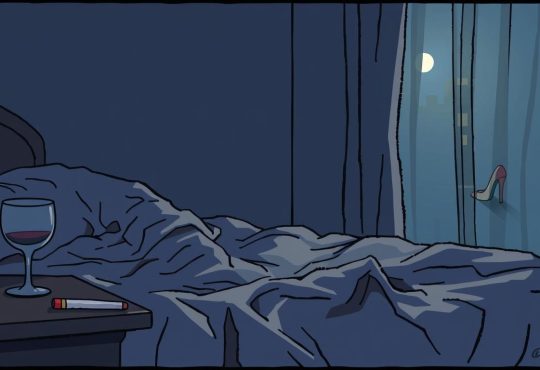
Have you ever wondered why trust and honesty are the cornerstones of a strong relationship? A healthy partnership thrives on open communication and mutual respect. Yet, sometimes, behaviors shift, and questions arise about what might be concealed.
When a partner becomes secretive, it can strain the connection between two people. Honesty is essential for maintaining love and understanding. Without it, even the strongest bonds can weaken.
This article explores how to recognize subtle changes in behavior and why addressing them early can strengthen your relationship. Let’s dive into the importance of truth and how to foster a deeper connection with your partner.
On this Page:
- 1 Relationship Shifts: Recognizing Changes in Behavior
- 2 Emotional and Behavioral Clues in Your Partnership
- 3 Nonverbal Communication and Body Language Signals
- 4 Digital Privacy: Overprotectiveness of Devices
- 5 Routine Disruptions and Unexplained Schedule Changes
- 6 Financial Red Flags in Your Relationship
- 7 Signs your spouse is hiding something from you
- 8 Effective Communication: Addressing Your Concerns
- 9 Conclusion
Relationship Shifts: Recognizing Changes in Behavior
Subtle shifts in behavior can often go unnoticed in a relationship. These changes might seem minor at first, but they can signal deeper issues. Understanding the difference between healthy privacy and secrecy is key to maintaining trust.
Understanding Privacy Versus Secrecy
Privacy is a natural part of any relationship. Everyone needs space to process thoughts and emotions. However, secrecy can undermine trust. When a partner starts guarding their phone or avoids discussing their day, it might raise concerns.
Studies show that sudden changes in behavior, like altered schedules or evasive attitudes, can indicate underlying issues. Recognizing these patterns early can help address concerns before they escalate.
When Changes Become a Concern
Not every change is a red flag. Life events, stress, or personal growth can influence behavior. But when shifts become consistent and unexplained, it’s worth paying attention. For example, unexpected absences or a sudden lack of affection might hint at deeper problems.
Having an open conversation is crucial. Approach the topic with empathy and a desire to understand the reason behind the changes. This can help rebuild trust and strengthen the relationship.
Emotional and Behavioral Clues in Your Partnership
Emotional and behavioral changes can reveal a lot about a partnership. When a partner starts acting differently, it’s often a sign that something deeper is happening. Understanding these clues can help address concerns before they grow.
Emotional Distance and Lack of Intimacy
One of the most noticeable changes is emotional distance. When a partner becomes less affectionate or avoids deep conversations, it can signal a problem. Research shows that decreased intimacy often leads to lower relationship satisfaction.
For example, if your partner seems uninterested in spending quality time together, it might be worth exploring why. Open communication can help bridge the gap and rebuild the emotional connection.
Picking Random Fights and Defensive Responses
Another clue is frequent, random fights. If your partner becomes overly defensive or starts arguments over small issues, it could be a reaction to internal guilt or fear. Studies show that defensiveness often points to underlying stress or dishonesty.
Instead of reacting with accusations, try to approach the situation with empathy. A calm conversation can help uncover the truth and strengthen your bond.
Recognizing these behaviors early can prevent further erosion of trust. Addressing them with honesty and understanding is key to maintaining a healthy partnership.
Nonverbal Communication and Body Language Signals
Nonverbal cues often speak louder than words in a relationship. The way a partner moves, looks, or gestures can reveal truths that spoken language might hide. Understanding these signals can help strengthen your connection and address concerns early.
Avoiding Eye Contact as a Red Flag
Eye contact is a powerful form of communication. Studies show that avoiding eye contact can indicate discomfort or dishonesty. If your partner frequently looks away during conversations, it might be a sign they’re hiding something.
Research highlights that consistent eye contact conveys honesty and trust. When this pattern shifts, it’s worth exploring the reason behind the change. Open communication can help uncover the truth and rebuild trust.
Defensive Gestures and Inconsistent Cues
Defensive gestures, like crossed arms or fidgeting, often accompany fabricated stories. These behaviors can signal anxiety or guilt. For example, if your partner’s body language doesn’t match their words, it might indicate a lie.
Inconsistent cues, such as sudden changes in tone or posture, can also raise concerns. Paying attention to these patterns can help you address issues before they escalate. Always consider nonverbal clues alongside other behaviors for a clearer picture.
Digital Privacy: Overprotectiveness of Devices
In today’s digital age, how we handle our devices can reveal a lot about our relationships. While privacy is essential, overprotectiveness of smartphones and laptops can sometimes signal deeper issues. Understanding the balance between healthy boundaries and secrecy is key to maintaining trust.
Guarding Smartphones and Laptops
When a partner takes their phone everywhere or adds new passwords without explanation, it might raise concerns. Studies show that 70% of individuals view excessive device protection as a potential red flag. This behavior can suggest an attempt to hide information, which can strain trust in a relationship.
For example, if your partner suddenly avoids leaving their phone unattended or becomes defensive when asked about their online activity, it’s worth addressing. Open communication can help clarify the issue and rebuild trust.
Excessive Secrecy Online
Excessive secrecy online, such as deleting chat histories or using hidden accounts, can also indicate trust issues. Research highlights that 80% of people believe a lack of communication history is a strong indicator of potential problems. When a partner’s digital behavior becomes inconsistent with their words, it’s time to take a closer look.
Experts recommend addressing these concerns through calm, constructive conversations. Instead of accusations, approach the topic with empathy and a desire to understand. This step can help uncover the truth and strengthen your bond.
Remember, digital behavior is just one indicator of relationship health. Combining it with other observations can provide a clearer picture of your partnership’s dynamics.
Routine Disruptions and Unexplained Schedule Changes
Routine changes can sometimes reveal more than we realize in a relationship. When a partner’s daily habits shift unexpectedly, it’s natural to wonder what might be causing the change. These disruptions, whether small or significant, can hint at deeper issues that need attention.
Sudden Shifts in Daily Habits
Abrupt changes in daily routines, like unusual late returns or unexpected appointments, can signal that a partner is hiding something important. Even one-off deviations, when part of a pattern, warrant closer attention. For example, sudden shifts in work hours or unexpected social outings might raise concerns.
Studies show that 75% of individuals view routine changes as a potential red flag. This behavior can suggest an attempt to conceal information, which can strain trust in a relationship. When these shifts become consistent, it’s worth exploring the reasons behind them.
Open dialogue is essential in these situations. Approach the topic with empathy and a desire to understand. A calm conversation can help uncover the truth and rebuild trust. Remember, context matters. Consider other factors before jumping to conclusions.
By addressing these changes early, you can strengthen your connection and foster a deeper understanding in your partnership. Recognizing patterns and responding with empathy is key to maintaining a healthy relationship.
Financial Red Flags in Your Relationship
Financial transparency is a cornerstone of trust in any partnership. When money matters become secretive, it can signal deeper issues that need attention. Unexplained expenses or unaccounted funds often raise concerns and disrupt the balance in a relationship.
Unaccounted Money and Hidden Expenses
Hidden expenses or sudden unaccounted-for expenditures can strain a partnership. For example, discovering unexplained charges on a credit card or missing funds from a joint account can lead to mistrust. Studies show that 30% of individuals admit to hiding financial information from their partner, often to avoid conflict or judgment.
Financial secrecy may reflect deeper issues of trust and transparency. When a partner starts making large purchases without explanation or avoids discussing finances, it’s worth addressing. Open communication is key to resolving these concerns and rebuilding trust.
Taking a measured step toward understanding the problem is crucial. Instead of jumping to conclusions, approach the issue with empathy and a desire to uncover the truth. Collaborative financial discussions can help strengthen your bond and ensure both partners are on the same page.
By addressing financial concerns early, you can prevent further strain on your relationship. Recognizing patterns and responding with understanding is essential for maintaining a healthy partnership.
Signs your spouse is hiding something from you
Recognizing subtle changes in a partner’s behavior can help address concerns early. While everyone values privacy, certain patterns may indicate deeper issues. Clusters of these behaviors, rather than isolated incidents, often signal the need for open communication.
Nonverbal cues, like avoiding eye contact or defensive gestures, can reveal discomfort or dishonesty. Studies show that inconsistent body language often accompanies fabricated stories. For example, crossed arms or fidgeting during conversations might suggest anxiety or guilt.
Verbal cues, such as vague explanations or sudden inconsistencies in stories, can also raise concerns. Research highlights that 70% of individuals view these patterns as potential red flags. When a partner’s words don’t align with their actions, it’s worth exploring the reason behind the disconnect.
Digital behaviors, like guarding devices or deleting chat histories, can further indicate trust issues. Experts recommend addressing these concerns through calm, constructive conversations. Instead of accusations, approach the topic with empathy and a desire to understand.
Remember, context matters. Weigh these signs within the full picture of your relationship. Addressing concerns early can strengthen your bond and foster a deeper connection. Open communication is key to maintaining trust and honesty in any partnership.
Effective Communication: Addressing Your Concerns
Open and honest communication is the foundation of any strong relationship. When concerns arise, addressing them with empathy and understanding can rebuild trust and strengthen your bond. A heart-to-heart conversation can help uncover the truth and resolve issues before they escalate.
Preparing for a Heart-to-Heart Conversation
Before initiating a conversation, take time to gather your thoughts. Reflect on the specific behaviors or changes that have raised concerns. This step ensures you approach the discussion with clarity and focus.
Choose a calm and private setting to talk. Avoid distractions and ensure both partners feel comfortable. Starting the conversation with “I” statements, like “I feel concerned when…” can help prevent defensiveness and encourage openness.
Using Empathy to Rebuild Trust
Empathy is key to creating a safe space for dialogue. Try to understand your partner’s perspective and emotions. Acknowledge their feelings and validate their experiences, even if you don’t agree.
Ask direct questions without sounding accusatory. For example, “Can you help me understand why this happened?” This approach fosters honesty and reduces tension. Rebuilding trust takes time, so be patient and consistent in your efforts.
Remember, effective communication is a two-way process. Active listening and mutual understanding are essential for resolving issues and strengthening your connection. By prioritizing honesty and transparency, you can build a stronger foundation for your relationship.
Conclusion
Building trust in a relationship requires attention to both words and actions. Recognizing shifts in behavior, like emotional distance or routine changes, can help address concerns early. However, it’s essential to avoid jumping to conclusions without understanding the full context.
Approach your partner with empathy and a desire to connect. Open conversations can uncover the root of issues and strengthen your bond. Every step, from observing changes to engaging in dialogue, plays a role in rebuilding trust.
Prioritize honesty and mutual respect as the foundation of your partnership. By fostering open communication, you can create a lasting and healthy relationship built on understanding and love.










